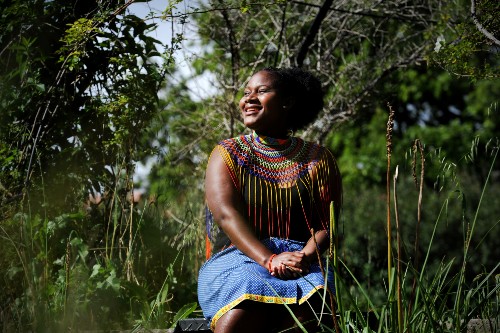The new £4.2m annual investment – totalling £16.8m over the next four years – opens up Bristol’s world-leading research to a global audience and helps shape the next generation of postgraduate researchers.
The University of Bristol Postgraduate Research Scholarships will be available across the University’s six Faculties and 25 Schools, creating a breadth of new and diverse research.
Scholars will receive a stipend and have their tuition fees covered as they break new ground on topics as varied as climate change, medical engineering and atmospheric chemistry.
This latest fund builds on the success of the Black Bristol Scholarship Programme, the Sanctuary Scholarship scheme and the many other scholarships and bursaries available at the University.
Bristol postgraduates have recently discovered how city gardens create an important supply of energy-rich nectar and how the biggest dinosaurs evolved from their smaller ancestors.
Meanwhile, Science Creates, founded by former Bristol postgraduate researcher Dr Harry Destecroix, has opened its second specialised incubator in Bristol.
Professor Hugh Brady, Vice-Chancellor and President at the University of Bristol, said: “Postgraduate researchers not only push the boundaries of their fields, but also build the world of tomorrow.
“They are responsible for world-changing ideas and technologies that we may all one day rely on. Many also go on to teach the next generation of students and researchers.
“Today’s announcement is a huge moment for the future of academic research.”
The announcement comes 100 years after the institution awarded its first PhD.
Dr Lily Batten’s research on 'The British species of the Genus Polysiphonia' was approved by the University’s board of examiners on 5 May 1921. Since then, 11,000 PhDs have been awarded.
Professor Robert Bickers, Associate Pro-Vice Chancellor for Postgraduate Research, said: “The story of research at the University across its history to date has very much been shaped by its postgraduate researchers.
“They shape the University itself, and their impact across the international research landscape, and across societies and across the world has been profound.
“We face many challenges globally as we look forward to the post-pandemic world, and these new researchers trained here will be at the forefront in tackling these. I am delighted to see this increased investment for postgraduate research that will build on, and expand, Bristol’s tradition.”
From barefoot student to Bristol scholar
When Bongai Munguni came to the University of Bristol on a scholarship in 2019 it was the first time she had left Africa.
But that was just one of many long journeys she had taken for her education. Bongai walked barefoot for eight hours every day to go to primary school and did her homework by the light of fires in her Mozambique village.
She studied for secondary education in the evenings and small hours, rising early each morning to work on a tea plantation.
“I am so happy that Bristol has announced these scholarships,” Bongai said.
“Learning at an institute where the textbooks you are using are written by your professors is truly amazing. At Bristol you don’t just study at one of the world’s top universities but you also have links with other top universities all around the world.
“I can’t wait to share this news with everyone and say ‘let’s go study in Bristol!’”
When Bongai graduates in two years she hopes to become a professor – perhaps via post-doc work at Harvard or Oxford – as well as a social entrepreneur.

